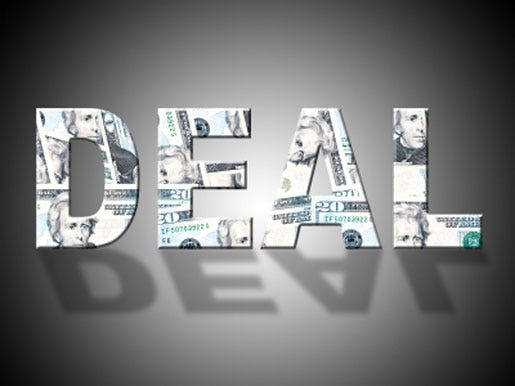April 20, 2017
In the medical device subsector, both the volume and total value of deals in the first quarter of 2017 were lower than in the prior and year ago quarters.

Venture capital funding for medical device companies may have rallied during the first quarter of 2017, but deal volume and value for mergers and acquisitions for the medtech industry declined during the same time period.
Deal value for life sciences mergers and acquisitions announced in the first quarter of 2017 rose, according to PwC's Health Research Institute Deals Insights Q1 2017 report. However, that increase was because of Johnson & Johnson's $30 billion bid for Actelion. Looking specifically at the medical device subsector--which was second only to pharmaceuticals in the life sciences industry--the report authors found the volume and value of transactions in the quarter declined from the fourth quarter of 2016.
There were 25 medical device deals, worth a total $8.163 billion, announced during the first quarter of 2017. That was slightly below the $9 billion total value of the 31 deals announced in the fourth quarter of 2016 and lower than the 11 medtech deals worth a total $10.8 billion announced during the first quarter of 2016.
The largest deal in the medical device arena during the quarter was an inbound transaction, with Ireland-based Allergan plc announcing the $2.475 billion acquisition of U.S.-based Zeltiq Aesthetics, Inc. Brian Geiger, a director at PwC, told Qmed that roughly half of medical device deals were between U.S. companies while the other half were between U.S. and foreign companies or between two foreign companies.
What's behind the lower deal volume? The report authors wrote that political uncertainty is playing a role. "Continued uncertainty in the market around tax reform and the future of the Affordable Care Act have been contributing factors to the constrained deal activity in the PLS (Pharma and Life Sciences) sector," they wrote. "These factors, combined with higher share prices, will continue to make it challenging for buyers and sellers to agree on deal values."
Still, there's reason for optimism, Dimitri Drone, partner, Global Pharmaceutical & Life Sciences Leader in PwC's Deals Practice, explained in the report. "While market uncertainty, pressure on drug pricing, and higher share prices slowed down deal making, the rationale for completing deals continues to be as strong as ever," he said. "As sector-specific uncertainties are either resolved or mitigated, it should be easier for buyers and sellers to agree on deal values which will lead to greater deal activity."
[Image courtesy of STUART MILES/FREEDIGITALPHOTOS.NET]
About the Author(s)
You May Also Like


